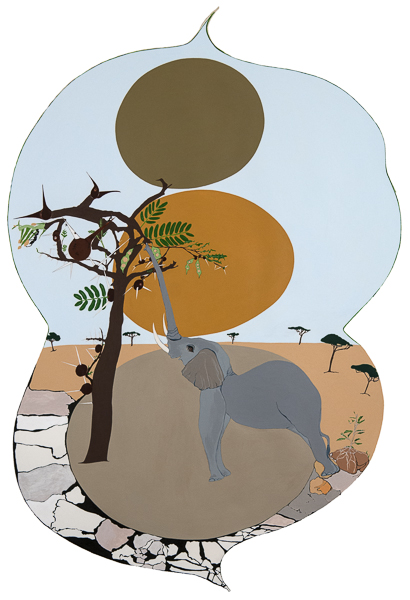
![]()
Reversing Desertification:
The Savannah Elephant, The Whistling Thorn Acacia
Tree and The Resident Crematogaster Mimosae Ants.
Elephants are living gardens, they digest very little of what they consume; much is passed through into dung, where many seeds survive. Along the paths where elephants walk, they leave a line of trees.
The Whistling Thorn Acacia tree is essential to the savannah ecosystem and is a major contribution to the food chain at the Serengeti National Park in the Eastern Uplands of Africa. The Acacia trees have adapted to survive with a strong root system and canopy for animal gatherings on sunny days. Animal droppings are great soil fertilizers for the trees. The elephant’s consumption of the leaves and fruit of the Acacia trees is essential to maintaining the food source of many species. If the elephants weren’t there to eat from these trees, they would soon grow large enough to shade everything; the grasses would die out, and grazing herds would disappear.
The Acacia benefits from their relationship with the Crematogaster Mimosae Ants. Four species of ants compete for the thorns on this tree. The swollen thorn bases that attract the ants are hollow. The thorns whistle once ants cut an entrance hole, wind blows, and the tree becomes a huge flute. The ants protect the tree by attacking large mammalian herbivores. This symbiotic relationship between the trees and the ants is maintained by the effects of the browsing elephants and giraffes.
In the savannah grassland ecosystem, a tremendous amount of carbon is stored and released. Desertified, damaged soil gives off carbon. The movement of grazing animals prevents overgrazing of plants. The trampling insures good cover of soil when the herd has passed.